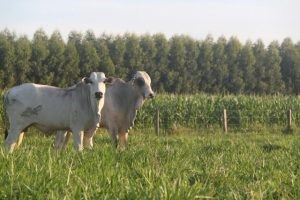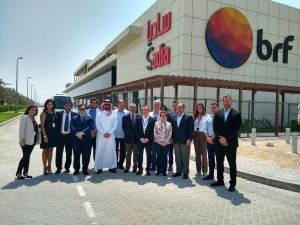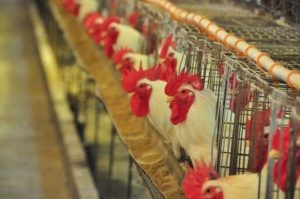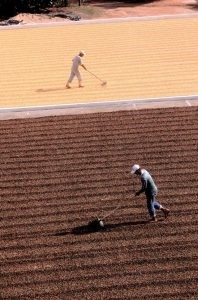
Agribusiness grows in the pandemic, becomes more attractive and expands exports to new markets.
The only sector of the Brazilian economy to register consecutive growth even in the midst of the last crises, agribusiness may become, in the coming years, the focus of mergers and acquisitions and foreign investors in the country. Sovereign funds, such as Saudi Arabia, have already contributed resources in Brazil, in the same way that national companies invested in factories and offices in the Middle East and North Africa, such as BRF, which opened a unit in Abu Dhabi and announced investments in the Saudi market.
This movement may have new chapters soon: in addition to proving itself a guarantor of food supply even in the pandemic, Brazil should register expansion in the production of arabica coffee, soy, sugar, cotton and corn and the highest Gross Value of Agricultural Production ( VBP) over the past 30 years, estimated at R$ 697 billion.

According to the president of the Brazilian Animal Protein Association (ABPA), Francisco Turra, there have been recent surveys of foreign investors by companies in the sector, but they have not yet materialized in business – yet. In Turra’s assessment, this should not be long in coming.
“I think the time for these investments is now, as agribusiness is going to come out of this crisis stronger than ever. Now it is time to invest resources, to take advantage of the fact that the exchange rate for exports promises a very fast return (on investment). Asians are attentive to opportunities, China is going to make investments here, and the Islamic world needs to take advantage of the opportunities that exist, ”stated Turra in an interview with ANBA.

“I am sure that Brazil will emerge from this crisis (generated by the covid-19), strengthened and with the image of being a great reserve in food production. The strongest sectors of the economy are those linked to agribusiness ”, he says.
Turra believes that this opportunity should also be taken advantage of by the fact that Brazil is a guarantor of food security to countries that do not have the same conditions of agricultural infrastructure or have a demand much higher than their production capacity. For these nations, it is more effective to invest in Brazil than in local food production.
“Saudi Arabia tried, a few years ago, to produce birds, but it is not easy. They can maintain and expand their knowledge and know-how in sectors where they are a power, such as energy, and invest in partnerships with Brazil in the food production sector. In strong partnerships that guarantee your food security ”, he says.
The commercial intelligence coordinator of the National Agriculture Confederation (CNA), Sueme Mori Andrade, also believes that Brazil has the credentials to attract investments from other countries in its agriculture and animal protein production, but not in the short term.
“The reduction in global economic activity has a direct impact on the ability of companies to invest. Caution and concern for liquidity are priorities at the moment. As long as this scenario of uncertainty exists, companies should avoid making long-term investments, such as productive ones. And this should not happen only with Brazil, but in the whole world ”, he evaluates, citing prospects of retraction in the Gross Domestic Product (GDP) of the countries released by the International Monetary Fund (IMF).

Like Turra, Sueme observes that, before the pandemic, there were surveys of Arabs for investments in Brazil. “Before the pandemic, Brazil had been receiving demonstrations from Saudi Arabia and other countries in the region interested in investing in food production here. Already aware of this, the Ministry of Agriculture organized a mission to the Middle East in September last year.
The CNA was part of the delegation that accompanied Minister Tereza Cristina and discussed ways to expand both trade and investments in these countries in Brazil. Undoubtedly, exporters that have not stopped supplying at this time, such as Brazil, will be recognized as reliable partners ”, says Sueme.
Being seen as a guarantor of international food security is a factor of great credibility and source of income for Brazil, notes Sueme. “To guarantee domestic supply, some countries have restricted the external sale of food and this has raised concerns in countries that depend on imports to feed their population. The strength of the Brazilian agri-food chains ensured not only the internal supply, but also the maintenance and even the growth of exports. From January to April, agribusiness foreign sales grew 5.9% compared to last year. It was US$ 31.4 billion, or US$ 1.75 billion more than in 2019, ”he says.

Professor in the Economics department at the Luiz de Queiroz School of Agriculture at the University of São Paulo (USP), Andréia Adami assesses that investments in a particular sector of the economy occur due to a combination of factors, such as: population growth in a country or greater purchasing power and the introduction of new technologies. This happened in China and Brazil. The Asian country has experienced in recent years an increase in the purchasing power of its population, which leads to the demand for products with higher added value, such as meat.
“If this consumption grows, there is also an expansion in the consumption of grains (which are food for animals). So, we have investments in protein producers, but also in grain producers ”, he analyzes.
Another factor that can lead to massive investment in a sector is the introduction of new technologies. Adami cites a Brazilian case as an example: flex cars, which can be fueled either with alcohol, a fuel produced from sugar cane, or with gasoline, produced from oil. “It was an innovation for the sugar and alcohol sector, due to the introduction of a new technology, which led to a very large and promising national market”, he says.
As a result of the arrival of this technology, companies in the sugar and alcohol sector made investments in their crops and plants. Some went bankrupt years later, others were acquired, companies left the sector and other companies consolidated their presence either through investments or through joint ventures.
Adami also recalls that it is not just the sugar, grains or proteins sectors that can benefit from investments, whether internal or external. The entire agribusiness production chain can have partnerships, companies and foreign investors, as is already the case with the supply of agricultural machinery and inputs. She cites the Arabs as an example of what has already happened.
“The Arabs are a model of what represents the establishment of partnerships. First, they imported chicken meat. Then, in the 2000s, Brazilian companies saw the need to open offices in the Arab countries and to approach them. Then, they consolidated the internationalization process and even opened industrial plants in the region. This shows a commitment, an increase in the partnership, since we are now not only exporting, but also working in partnership and generating jobs in the Arab countries, ”says Adami.
Source: www.camexdobrasil.com